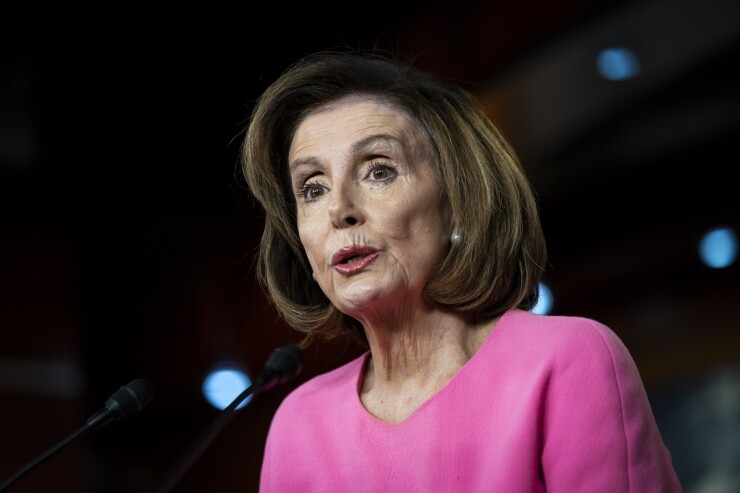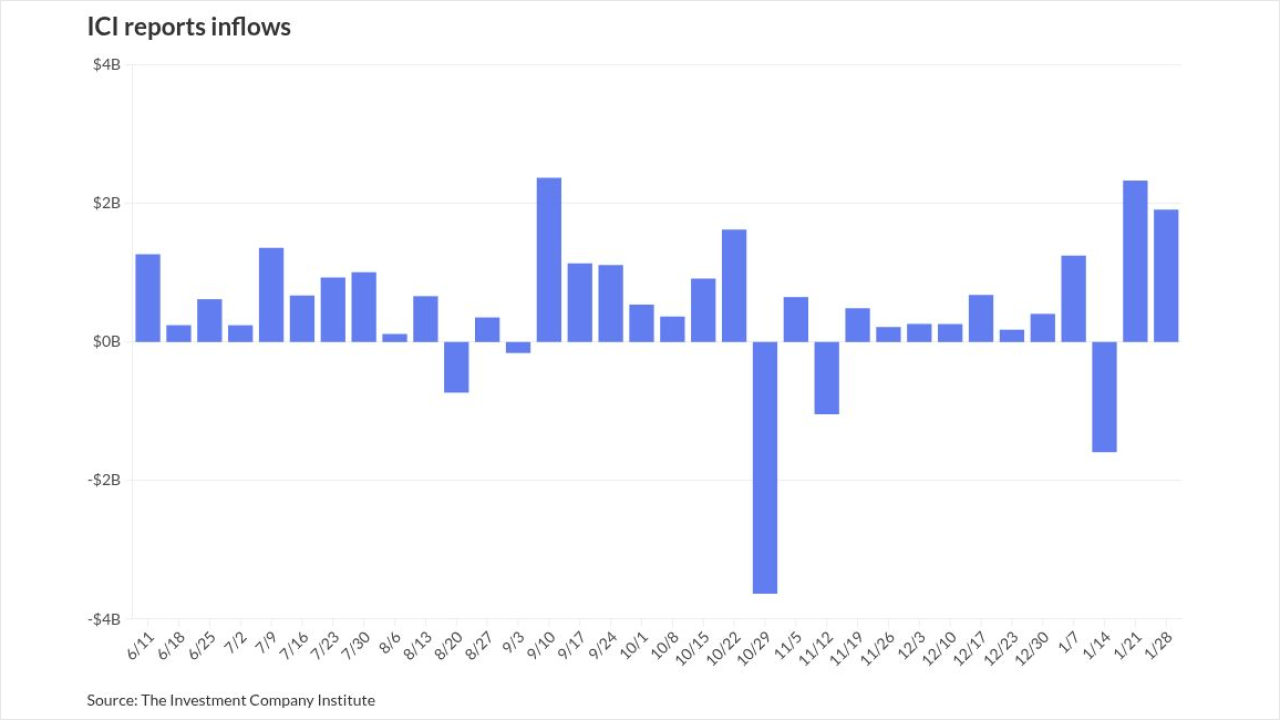
A $760 billion infrastructure plan packed with help for the public finance sector is being offered by House Democrats as the legislative vehicle for fourth coronavirus emergency spending bill that would focus on economic stimulus.
The five-year spending plan Democrats originally proposed at the end of January calls for reinstating advance refunding, Build America Bonds and tax credit bonds. It also would expand qualified private activity bonds, allow a to-be-decided increase in airport passenger facility charges and $40 billion more for State Revolving Funds that finance water projects.
Speaker Nancy Pelosi told reporters in a conference call Wednesday that new additions that would increase the original price tag of the package include $10 billion for construction of new community health centers.
The coronavirus health emergency has exposed gaps in the nation’s healthcare system and the need for universal high speed broadband, Democrats said. The original package already set a goal of achieving universal high speed broadband.
There’s $25.4 billion to deal with safe drinking water to replace older water systems, according to Rep. Frank Pallone, Jr., of New Jersey, chairman of the Energy and Commerce Committee. Pallone said that families in self isolation shouldn't need to leave their homes to obtain safe drinking water.
Pallone said there’s also $1.5 billion for a new program modeled after the Low Income Home Energy Assistance Program, also known as LIHEAP, to help residential customers pay their water bills.
Democrats also are seeking two other items that Republicans objected to in the $2 trillion CARES Act: pension relief and financial assistance for the U.S. Postal Service.
Two other infrastructure proposals involving education and housing also will be announced in the coming days, Pelosi said.
House Transportation and Infrastructure Committee Chairman Peter DeFazio, D-Ore., and Pelosi, D-Calif., said support for the infrastructure proposals is bipartisan but the Trump administration needs to take a leadership role in advocating how to pay for it.
“I could provide legislative language for this proposal in very short order,” DeFazio said.
Pelosi said drafting the bill might take several weeks, but the House is currently scheduled to come back into session April 20.
She acknowledged that Senate Majority Leader Mitch McConnell, R-Ky., and House Republican Minority Leader Kevin McCarthy, R-Calif., have said they don’t foresee an immediate need for additional emergency legislation.
But Defazio said there’s widespread agreement on both sides of the aisle on the need to fix infrastructure. “No one denies those needs,” he said.
“This is rebuilding America and preparing for the 21st Century,” said DeFazio. “The multiplier effect is extraordinary.”
Reinstating advance refunding would be a tremendous boost to the municipal bond industry at a time when interest rates are at historically low levels.
BABs were a very popular part of the 2009 American Recovery and Reinvestment Act enacted by Congress as an economic stimulus during the Great Recession.
BABs carry a 35% direct-pay federal subsidy to issuers except that they are subject to mandatory reductions under budget sequestration. A fact sheet distributed by House Democrats back in January indicated that their BABs proposal would remove sequestration.
“More than $181 billion in Build America Bonds were issued in the two years they were available, supporting nearly 2,300 projects around the country,” the fact sheet said.
The January fact sheet also laid out these provisions:
-- Qualified PABs would be used to expand “the national volume cap for qualified highway or surface freight transfer facilities to allow for greater investment in surface transportation public-private partnerships.”
-- Restoration of advanced refunding would restore “state and local governments’ ability to invest in infrastructure projects with favorable financing terms by allowing them to use one bond’s proceeds to replace existing bonds.”
-- Tax Credit Bonds would provide “a taxable bond that state and local governments can use to finance surface transportation projects while the bondholder receives a tax credit, rather than tax-free interest like municipal bonds.”
-- Tax Credits would be used to expand “existing infrastructure tax credits and create new credits to improve all sectors of infrastructure investment, including community development projects driven by the new markets tax credit, housing investments incentivized by the low-income housing tax credit, and community revitalization through the rehabilitation credit for historic buildings.”
-- Green energy provisions would build on “the committee’s work on green energy and efficiency, by providing incentives for renewable energy projects and new technologies to modernize the electric grid, improve resiliency, and further accelerate the transition to a clean energy economy.”





